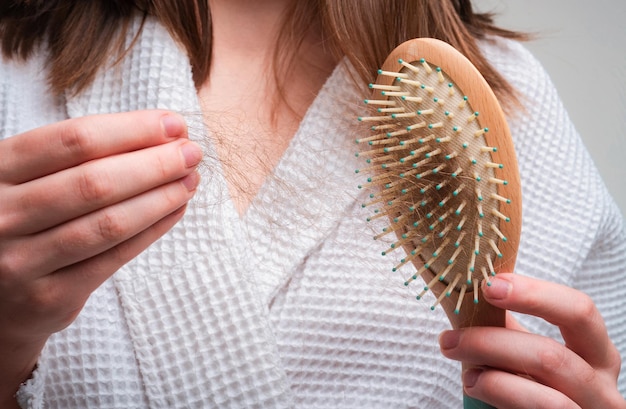4 Factors Associated with Hair Loss
Recent research indicates that many factors within our control can potentially prevent genetic hair loss from manifesting. Here are four surprising contributors to hair loss.
Gravity
Believe it or not, gravity might play a role in male hair loss, becoming more significant with age. When men are young, the scalp has enough fat tissue beneath the skin to stay well-hydrated and cushion the hair follicles. As men age, this fat tissue and the skin become thinner, increasing the pressure on hair follicles. However, this is not a problem for pre-menopausal women because estrogen prevents the thinning of fat tissue, unlike testosterone. Essentially, it’s largely a matter of hormonal imbalance.
Stress
It’s not surprising that stress is a major cause of hair loss. When you’re stressed, hair can enter the telogen phase, meaning it falls out. This shedding can occur up to three months after a stressful event. Fortunately, the hair usually grows back within six to nine months. However, in situations like childbirth or surgery, the body might pause hair growth to focus on recovery. Everyone’s response to stress is different, and for some, hair loss is a part of that response.
Smoking
A study from the Archives of Dermatology suggests that age-related hair loss in Asian men might be linked to smoking. Although the exact mechanism is unclear, one theory is that smoking damages hair follicles. While the study focused on Asian men, quitting smoking might benefit anyone experiencing hair loss.
Dental Infections
Poor dental health can also lead to hair loss. Infections in the teeth have been associated with alopecia areata, a type of localized hair loss. Unexplained hair loss in a specific area of the scalp could be a sign to visit the dentist for a check-up.
Are There Natural Solutions for Hair Loss?
What can be done about hair loss? The market is full of dubious baldness cures, but is there any research to support natural solutions? Nutrition, particularly iodine intake, might play a role. Some researchers believe hair loss is linked to the conversion of testosterone into dihydrotestosterone and that inhibiting this enzyme could stop hair loss. Though this is still a theory, some studies support it. Additionally, hair loss might be reversible within the human body. Recently, researchers successfully used human stem cells to grow new hair, marking a significant step towards a cell-based treatment for hair loss.

